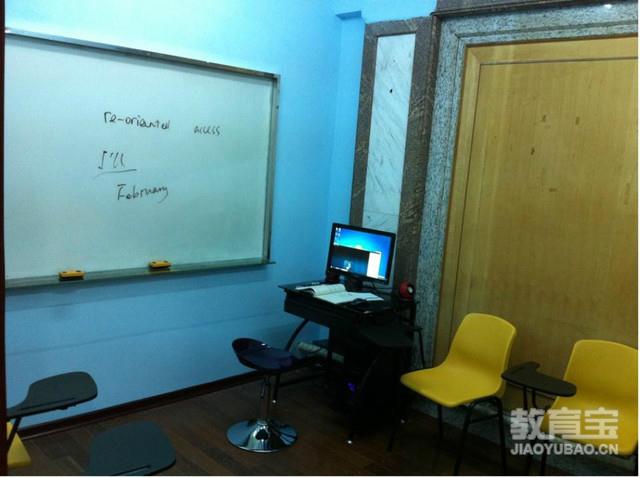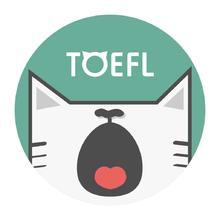 返回
教育头条
返回
教育头条

托福听力具体的解题技巧分享
面对托福听力的真题部分,大家可以多进行相关的练习。这样能够辅助我们更好的来提高听力水平,让大家更充分的掌握具体的解题技巧。那么实际训练中,这些练习的真题内容是什么?下面小编为大家整理了详细的内容,供大家参考!
conversation:term paper of bird migration
Listen to a conversation between a student and his Biology professor.
S: Dr. Russell, I was hoping to discuss my term paper with you I'm getting a little bit stuck here.
P: Of course, so...what do you have so far? What's your topic?
S: Well, I wanted to write about bird migration, but I'm having trouble finding enough sources.
P: You're having trouble finding sources on bird migration
S: No, actually, on the particular aspect of bird migration that I want to write about.
对话:鸟类迁徙术语
听学生和他的生物学教授之间的对话。
S:Russell博士,我希望与您讨论我的学期论文,但是我在这里有些卡住了。
警:当然,那...到目前为止你有什么? 你的主题是什么?
S:恩,我想写有关鸟类迁徙的文章,但是我在寻找足够的来源方面遇到了麻烦。
警:您在寻找鸟类迁徙的来源时遇到了麻烦
S:不,实际上,我想写的是鸟类迁徙的特定方面。
The thing is, I wanted to write specifically on early theories of bird migration...describe some of the theories. Like how Aristotle thought that birds changed into different species during the winter. Or how other naturalists thought that bigger birds carried smaller birds to warmer spots for the wintertime. But I've only got a couple of books to work with right now.
问题是,我想专门写一些关于鸟类迁徙的早期理论...描述一些理论。 就像亚里士多德(Aristotle)认为冬季鸟类变成不同物种的方式一样。 或者其他博物学家如何认为较大的鸟类会在冬季将较小的鸟类带到较温暖的地方。 但是我现在只有几本书可以使用。
P: Hm...I have to admit that it's an interesting topic, and you certainly seem excited by it. But remember I told you all to ask yourselves how your topic is going to help you show that you can apply what you've learned this semester. A summary or description is not really what I'm looking for as much as your analysis of a certain topic. 嗯...我不得不承认这是一个有趣的话题,你当然对此感到兴奋。 但是请记住,我告诉大家,您的主题将如何帮助您证明自己可以应用本学期的知识。 摘要或描述并不是我真正想要的,而不是您对某个主题的分析。
S: I guess it's not really what we're supposed to do, huh 我想这不是我们应该做的。
P: Right. So, how about we think about some other ideas for your paper. I mean you don't need to discard the idea completely... but... take a really different focus. Um... for example...you could present what you think are some reasons-the rationale-behind some of the erroneous theories early naturalists had. But, you'll be supporting your views with current research; those are the sources you'll need to seek out.
对。 那么,我们如何考虑您的论文的其他想法。 我的意思是您不需要完全放弃这个主意...但是...要采取完全不同的重点。 嗯...例如...您可以提出您认为是某些原因的理由-早期自然者的一些错误理论背后的理由。 但是,您将通过当前的研究来支持您的观点。 这些是您需要寻找的资源。

S: Ok, I think I see what you're saying. So, like today...today we know that lots of small birds migrate at night, but maybe `cause people didn't see them-didn't see the small birds migrating-they only saw bigger birds, like geese migrating during the day. They thought that the big birds were carrying the small ones under their wings. 好的,我想我明白您的意思。 因此,像今天一样……今天,我们知道很多小鸟在夜间迁徙,但也许“是因为人们没有看到它们-没看到小鸟在迁徙-他们只看到较大的鸟,例如鹅在迁徙期间迁徙。 天。 他们以为大鸟在翅膀下carrying着小鸟。
P: There you go! That's exactly what I mean. You're showing that you're thinking about the topic, not just telling me what you read. 你去! 这就是我的意思。 您表明自己正在考虑该主题,而不仅仅是告诉我您阅读了什么。
S: Ok, I also have a really cool example of a migratory bird that I'd like to discuss in my paper. It's the Common Poorwill—I mean it seems that some Ornithologists believe that the Common Poorwill really does hibernate instead of migrating-that it's maybe the only bird that does. 好的,我还有一个很酷的候鸟示例,我想在论文中讨论。 这是普通的穷人-我的意思是,似乎某些鸟类学家认为普通的穷人确实确实冬眠而不是迁移-它也许是
鸟类。
P: If I were you, I would stick just with migration research. Remember, this is only a 15-page paper. 如果我是你,我将只从事迁移研究。 请记住,这只是一篇15页的论文。
S: Ok, I see your point. 好,我明白你的意思了。
P: But it's great that you're finding this all so interesting. I want you to come back to see me in a week so we can take a look at the new direction in your paper and evaluate the sources you've found in the meantime. 但很高兴您发现所有这些都如此有趣。 我希望您一周后再来看我,这样我们就可以了解您论文中的新方向,并评估您在此期间找到的资源。
conversation:term paper of bird migration
Listen to a conversation between a student and his Biology professor.
S: Dr. Russell, I was hoping to discuss my term paper with you I'm getting a little bit stuck here.
P: Of course, so...what do you have so far? What's your topic?
S: Well, I wanted to write about bird migration, but I'm having trouble finding enough sources.
P: You're having trouble finding sources on bird migration
S: No, actually, on the particular aspect of bird migration that I want to write about.
对话:鸟类迁徙术语
听学生和他的生物学教授之间的对话。
S:Russell博士,我希望与您讨论我的学期论文,但是我在这里有些卡住了。
警:当然,那...到目前为止你有什么? 你的主题是什么?
S:恩,我想写有关鸟类迁徙的文章,但是我在寻找足够的来源方面遇到了麻烦。
警:您在寻找鸟类迁徙的来源时遇到了麻烦
S:不,实际上,我想写的是鸟类迁徙的特定方面。
The thing is, I wanted to write specifically on early theories of bird migration...describe some of the theories. Like how Aristotle thought that birds changed into different species during the winter. Or how other naturalists thought that bigger birds carried smaller birds to warmer spots for the wintertime. But I've only got a couple of books to work with right now.
问题是,我想专门写一些关于鸟类迁徙的早期理论...描述一些理论。 就像亚里士多德(Aristotle)认为冬季鸟类变成不同物种的方式一样。 或者其他博物学家如何认为较大的鸟类会在冬季将较小的鸟类带到较温暖的地方。 但是我现在只有几本书可以使用。
P: Hm...I have to admit that it's an interesting topic, and you certainly seem excited by it. But remember I told you all to ask yourselves how your topic is going to help you show that you can apply what you've learned this semester. A summary or description is not really what I'm looking for as much as your analysis of a certain topic. 嗯...我不得不承认这是一个有趣的话题,你当然对此感到兴奋。 但是请记住,我告诉大家,您的主题将如何帮助您证明自己可以应用本学期的知识。 摘要或描述并不是我真正想要的,而不是您对某个主题的分析。
S: I guess it's not really what we're supposed to do, huh 我想这不是我们应该做的。
P: Right. So, how about we think about some other ideas for your paper. I mean you don't need to discard the idea completely... but... take a really different focus. Um... for example...you could present what you think are some reasons-the rationale-behind some of the erroneous theories early naturalists had. But, you'll be supporting your views with current research; those are the sources you'll need to seek out.
对。 那么,我们如何考虑您的论文的其他想法。 我的意思是您不需要完全放弃这个主意...但是...要采取完全不同的重点。 嗯...例如...您可以提出您认为是某些原因的理由-早期自然者的一些错误理论背后的理由。 但是,您将通过当前的研究来支持您的观点。 这些是您需要寻找的资源。

S: Ok, I think I see what you're saying. So, like today...today we know that lots of small birds migrate at night, but maybe `cause people didn't see them-didn't see the small birds migrating-they only saw bigger birds, like geese migrating during the day. They thought that the big birds were carrying the small ones under their wings. 好的,我想我明白您的意思。 因此,像今天一样……今天,我们知道很多小鸟在夜间迁徙,但也许“是因为人们没有看到它们-没看到小鸟在迁徙-他们只看到较大的鸟,例如鹅在迁徙期间迁徙。 天。 他们以为大鸟在翅膀下carrying着小鸟。
P: There you go! That's exactly what I mean. You're showing that you're thinking about the topic, not just telling me what you read. 你去! 这就是我的意思。 您表明自己正在考虑该主题,而不仅仅是告诉我您阅读了什么。
S: Ok, I also have a really cool example of a migratory bird that I'd like to discuss in my paper. It's the Common Poorwill—I mean it seems that some Ornithologists believe that the Common Poorwill really does hibernate instead of migrating-that it's maybe the only bird that does. 好的,我还有一个很酷的候鸟示例,我想在论文中讨论。 这是普通的穷人-我的意思是,似乎某些鸟类学家认为普通的穷人确实确实冬眠而不是迁移-它也许是
鸟类。
P: If I were you, I would stick just with migration research. Remember, this is only a 15-page paper. 如果我是你,我将只从事迁移研究。 请记住,这只是一篇15页的论文。
S: Ok, I see your point. 好,我明白你的意思了。
P: But it's great that you're finding this all so interesting. I want you to come back to see me in a week so we can take a look at the new direction in your paper and evaluate the sources you've found in the meantime. 但很高兴您发现所有这些都如此有趣。 我希望您一周后再来看我,这样我们就可以了解您论文中的新方向,并评估您在此期间找到的资源。
好了,以上就是托福听力具体的解题技巧分享的介绍,如对本文有疑问或者想了解更多托福信息,请与我们联系,我的微信18560125702。教育宝是一家教培行业第三方平台,5年以上工作经验的学习顾问能给你最客观公正的建议,帮你辨别课程好坏,为你提供学习帮助。返回教育宝头条
【免责声明】本文仅代表作者本人观点,与教育宝无关。教育宝对文中陈述、观点判断保持中立,不对所包含内容的准确性、可靠性或完整性提供任何保证。请读者仅作参考,特此声明!





